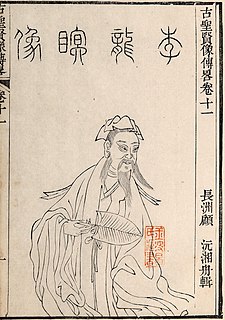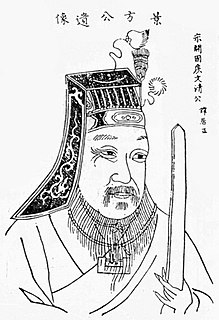 W
WLi Gonglin, style name Boshi (伯時), art name Longmian Jushi, was a Chinese antiquarian, painter, and politician during the Northern Song Dynasty.
 W
WLu You was a prominent poet of China's Southern Song Dynasty(南宋).
 W
WOuyang Xiu, courtesy name Yongshu, also known by his art names Zuiweng and Liu Yi Jushi, was a Chinese essayist, historian, poet, calligrapher, politician, and epigrapher of the Song dynasty. A much celebrated writer, both among his contemporaries and in subsequent centuries, Ouyang Xiu is considered the central figure of the Eight Masters of the Tang and Song. It was he who revived the Classical Prose Movement and promoted it in imperial examinations, paving the way for future masters like Su Shi and Su Zhe.
 W
WSima Guang, courtesy name Junshi, was a Chinese historian, writer, official, and politician. He was a high-ranking Song dynasty scholar-official and historian who authored the monumental history book Zizhi Tongjian. Sima was a political conservative who opposed Wang Anshi's reforms.
 W
WSu Song was a Chinese polymathic scientist and statesman. Excelling in a variety of fields, he was accomplished in mathematics, astronomy, cartography, geography, horology, pharmacology, mineralogy, metallurgy, zoology, botany, mechanical engineering, hydraulic engineering, civil engineering, architecture, invention, art, poetry, philosophy, antiquities, and statesmanship during the Song Dynasty (960–1279).
 W
WXue Juzheng was a scholar-official who successively served the Later Jin, Later Han, Later Zhou and Song dynasties. He was one of the chief ministers of the Song dynasty from 973 until his death.
 W
WZeng Gong, courtesy name Zigu (子固), was a Chinese historian, essayist, politician, and writer of the Song Dynasty in China. He was one of the supporters of the New Classical Prose Movement (新古文運動) and is regarded by later scholars as one of the Eight Great Prose Masters of the Tang and Song (唐宋八大家).
 W
WZhu Xi, also known by his courtesy name Yuanhui, and self-titled Hui'an, was a Chinese calligrapher, historian, philosopher, politician, and writer of the Song dynasty. He was a Confucian scholar who was the most influential Neo-Confucian in China. His contributions to Chinese philosophy including his editing of and commentaries to the Four Books, which later formed the curriculum of the civil service exam in Imperial China from 1313 to 1905; and his emphasis on the process of the "investigation of things" and meditation as a method for self cultivation.